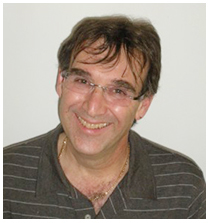Peter Eckstein
 In the Talmud we read of a discussion between sages over the question of study vs. practice. One rabbi claimed that practice was more important than study. Another declared that the reverse was true, and that study was primary. The consensus was that study is more important because it leads to practice. The conversations on JEDLAB reflect these two perspectives.
In the Talmud we read of a discussion between sages over the question of study vs. practice. One rabbi claimed that practice was more important than study. Another declared that the reverse was true, and that study was primary. The consensus was that study is more important because it leads to practice. The conversations on JEDLAB reflect these two perspectives.
We have seen many queries about specific programmatic ideas related different aspects of Jewish education. One thread related to resources available for teaching Midrash to children. One person suggested having children list the things they wonder about in specific sections of text or in a story and then use examples found in midrash that could be used to answer their questions. Another suggestion was using the idea of a love letter, and how the person who wrote it might look at the words in a different way than the one who receives it. Another interesting suggestion was to look at the story of the Wizard of Oz and try to interpret what it was all about.
Recently, someone was looking for Purim crafts. Suggestions ranged from Purim origami hamentashen, graggers made out of “interesting materials” and hamentashen made out of clay. Sometimes posts are very timely….the day before Prime Minister Netenyahu’s address to Congress, Makom, an Israel educational organization posted a link to a study guide to help folks prepare. Click here for the link.
There was another thread about integration technology into Jewish educational settings. This conversation focused on challenges that educators faced when attempting to incorporate edtech. Some issues raised were purely infrastructure related, including lack of, or poor wifi coverage; and not enough devices. The major stumbling blocks concerned the lack of teacher training and support – many teachers don’t know enough about educational technology, so are wary of engaging in its use. What many people felt was necessary to successful integrate digital technology into Jewish education, was to create opportunities for teacher training – not just one shot but ongoing. If teachers felt more comfortable, then they will be more apt to use digital tools.
Earlier, I wrote about study and practice. A very dynamic conversation that took place in the JEDLAB universe seemed theoretical. It focused on the role of reflective practice. What this means is how we as educators think about what we do. Specifically, when do we have time to sit down and reflect on how a lesson or program went? Do we have time to think about this, or are we just moving from one event to another? A number of respondents said that they don’t reflect on what they do (lack of time, or patience). Others extolled the importance of reflective thinking and how it adds to the quality of teaching.
My favorite JEDLAB thread (of all time) was the discussion about “Grateful Judaism,” the relevance of the music of the Grateful Dead to prayer. A very serious discussion revolved around songs by The Dead, and how they can be used in Jewish education. Suggestions included “Box of Rain”, “Eyes of the World”, “Fire on the Mountain”, “Ripple”, and many more. What are your suggestions?
Remember, the music never stopped, especially on JEDLAB.

